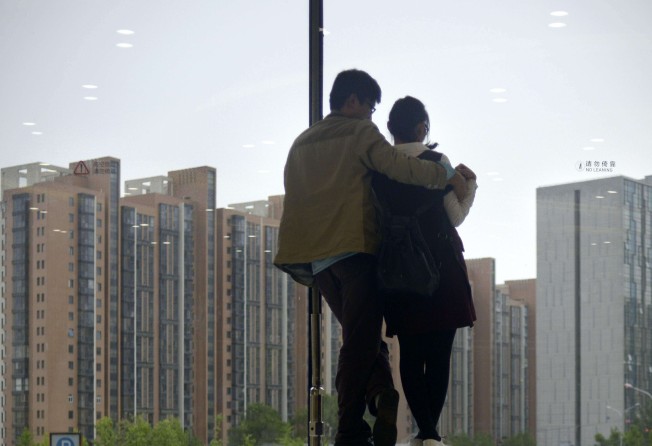Property sell-offs becoming the saviour of struggling state-owned firms
Latest example is Xi’an-based Tianhe Defense, which is selling three properties in Beijing for an expected 26.3 million yuan.

Flats in Beijing have started looking more like automated teller machines for some listed companies, as another loss-making public firm announced plans to sell more property assets in an attempt to beautify its fractured balance sheet.
Tianhe Defense, a Xi’an-based air command and control systems product company, revealed on Tuesday night it was selling three properties in Beijing for an estimated total of 26.3 million yuan.
Listed on China’s Growth Enterprise Board in 2014, the state company is expecting to earn 10 million yuan from the sale after two years of losses.
It is hoping the proceeds could offset the 21.7 million losses incurred in the first half of 2016. The apartments being sold are valued at 45,000 yuan to 65,000 yuan per square metre.
This latest case, along with earlier similar sales in the Chinese capital, exemplify what has become the stark contrast between surging property prices and the struggling manufacturing and service sectors, and is being viewed by analysts as an anathema of the top leadership’s vow to boost the real economy and deflate asset bubbles.
“The surge in China’s property market this year is unparalleled,” said Ma Guangyuan, a renowned Chinese economist.
“The market has experienced an astonishing increase in leverage and demand, which have pushed up prices – but they do not accurately reflect genuine demand.
“The result is that return-chasing capital is fleeing the real economy given their lacklustre returns, which in turn is exacerbating conditions,” he added.
Last week, ST Ningtong B, a listed subsidiary of Nanjing Putian Telecommunication Co, a telecommunication equipment provider, said it too planned to sell two properties in Beijing, to save itself from the brink of being delisted. Both located near top schools, they were valued at 22.7 million yuan, a 16-fold increase over the original prices paid.
The company reported 21.1 million losses in the first-half following consecutive annual losses in 2014 and 2015. According to China’s securities market rules, a company reporting three consecutive years of losses should delist.
Even Lenovo, the world’s largest personal computer manufacturer, has resorted to property sell-offs to improve its earnings report.
The company, which said on Tuesday it was implementing another round of layoffs as it struggles to revive its flagging smartphone business, doubled its operating profit of US$245 million for the quarter ended June 30.
But executives attributed 49 per cent of that, or US$120 million, to property sales.
Lenovo’s owner Legend Holdings earlier this month sold its 41 property projects in 16 cities to Sunac China Holdings, for $2.1 billion.
According to the latest quarterly survey of more than 3,100 firms by China Beige Book International, the country’s economic rebalancing to consumer-led growth is now reversing, with its “old economy” replacing the “new economy” as the main engine of the economy.
Manufacturing, property and commodities strengthened while retail, services and transportation – crucial parts of the “new economy” – all saw weaker results in the third quarter, the private survey shows.
The New York-based research group collects anecdotal accounts, just as those in its Federal Reserve Beige Book.
“Deteriorating corporate finances and a rebalancing reversal seem a high price to pay for a quarter’s worth of stability,” CBB president Leland Miller and chief economist Derek Scissors concluded in their study on China.
Analysts have generally been blaming the central government’s easy-credit policy, local governments’ shortage of land supply, and poor returns in non-property sectors, as the main drivers for the latest rally in the country’s property market.
In Beijing for example, no single plot of residential-use land was sold from June to August.
Sun Huimin, an executive with a Hefei-based property consultancy, said: “It’s ironic that China’s ‘de-stocking’ initiative was designed to cut excessive inventories in third and fourth-tier cites, but it has ended up heating up markets in first and second-tier cities instead.”